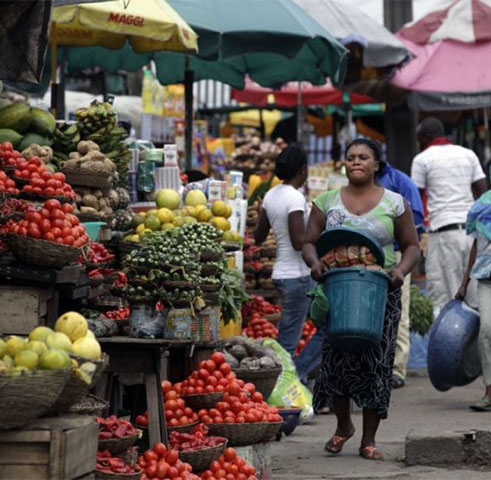Agribusiness operators say a dollar shortage following the oil price crash is making it difficult for them to import equipment for agricultural production. They also bemoaned the activities of Fulani herdsmen and the insurgency in the North East, noting that these may eventually cause food scarcity in the nearest future.
They lamented that even though forex scarcity has forced them to buy the hard currency at a black market premium, it has consequently pushed up their operating costs and prices of agricultural products.
They fear they may not continue like this if the Central Bank of Nigeria (CBN) fails to come to their rescue.
Naira has been under pressure since the start of the oil price rout in mid-2014. The shortage of dollars on the official foreign exchange market has pushed the cost of the greenback to an all-time high on the black market. As at Wednesday a dollar exchanged for N350, almost twice of the official rate of N197.
The stakeholders who spoke to Independent wondered how vital equipment and machinery for production and processing of agric products can be imported, noting that some agro-chemicals and seedlings are also imported.
They said following drastic reduction in food production because of activities of the Boko Haram Islamist sect in the North East that have displaced farmers, food crisis is imminent in the country. They also fingered the activities of Fulani herdsmen which has made farmers fear going to the farm. Of late, the herders have been attacking farmers and their host communities following their grazing activities. They are reported to have killed many in Benue, Enugu, Ekiti, Delta, among others. Following this, farmers for fear of their lives are reluctant to go to farm.
Adeola Elliot, chairman, Lagos Chamber of Commerce and Industry (LCCI), Agro and Allied Group, explained that the forex scarcity is having serious impact on those who import products like seedlings and also those who bring in equipment.
Elliot said it has really slowed down production and has also slowed down agro processing, adding that it has affected quite a lot of farmers. He noted that it has affected production capacity, predicting that there will be a decline in food production soonest.
“Basically, it has affected production capacity. Obviously, there will be a decline in food production soon. As we speak, both farm production and the agro-processing aspects are all having challenges. It is just like we have been producing X quantity of a particular product and you need some seedlings that are to be imported for production and you don’t have access to forex, definitely your production will be delayed, it will slow down and it will also affect the processing and production,” he reckoned.
He said based on the delay in production, it will result to scarcity and high price of products.
The scarcity of forex is hurting businesses that need dollars and nearly every agribusiness venture requires forex. This is dotto to manufacturing firms.
Frank Jacobs, president, Manufacturers Association of Nigeria (MAN), noted that businesses sourcing dollars through the black market is “obviously not the best thing for the country. It means those (groups) have to increase the price of their products and therefore the products become uncompetitive.”
“I just read a report now that there is an insect that is affecting also maize, after that of tomatoes. Now it is difficult to buy the chemicals that can kill these insects because some of them are not found in Nigeria. Definitely, it means the rampaging insects will continue to run riot on tomatoes and maize.
“The consequence is low production, we must be preparing for inflation and food scarcity or food shortage. So the issue of foreign exchange is hitting hard on small farm holders, it is increasing the cost of production and agro chemicals that we need,” he said.
Anga Sotonye, an agribusiness strategist, also noted that the forex scarcity has suddenly hiked the prices of inputs and machineries that farmers need to enhance their businesses out of the reach of the average farmer.
“It has affected us especially in the area of agricultural equipment we import into the country. It has suddenly hiked the prices of products. We are paying a lot more for inputs and machineries that we will need to enhance our businesses, so that is a huge cost burden on us, it is telling on our businesses heavily because right now we can only get funds from the parallel (black) market to finance import of agricultural equipment that we need to work in our farms and in our factories,” he added.
He said one cannot really map out the real increase on the products but it is over 100 percent.
“If you want to buy equipment today you have to go and source for dollar from the parallel (black) market which is about N350 to a dollar, because you cannot get it at the CBN official window; it is very difficult. We can only hope that the government will be clearer in terms of its foreign exchange policy so that it can help business.”
A major farmer in the Middle Belt said the activities of the herders have reduced the movement of cattle and foodstuff to markets in the southern part of the country, as the Hausa/Fulani traders have become apprehensive that they might be attacked by the aggrieved people following attacks by the herders.
He noted that many farmers had abandoned their farmlands following the menace of the herders and that traders from the North have also cut down on the quantity of cattle, rice, beans and vegetables they move down to the South for sale.

